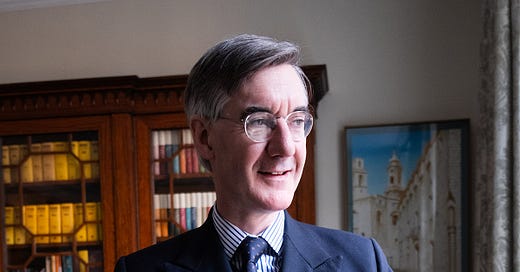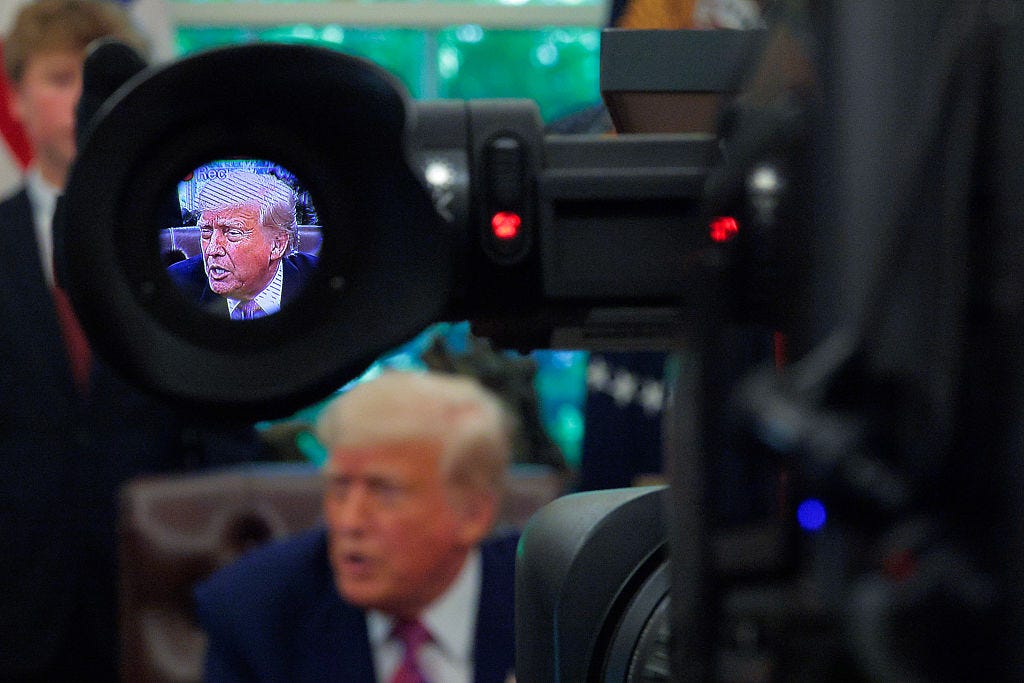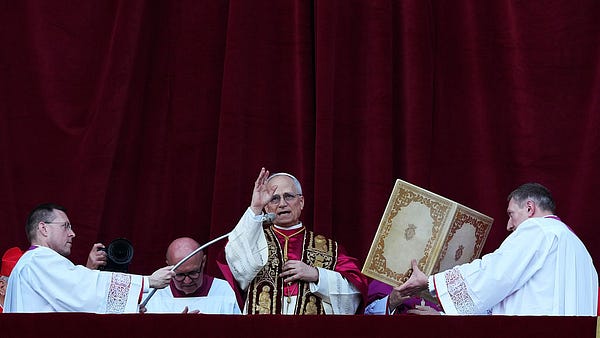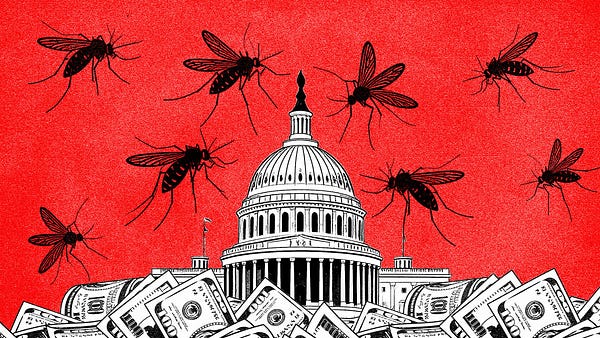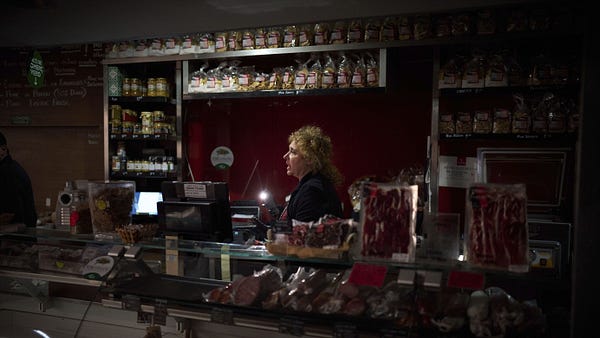
The Free Press

I went to England for the first time last week, and in the run-up to the trip, it became very clear that I am one of those Americans.
Whenever anyone suggested doing something nice in London—a “roast”? a trip to Piccadilly?—I tortured them with my Cockney accent, “Wright mate, fawn-cee a point wichha fuwl Engwish?,” which prompted one of my colleagues to offer to call a paramedic. Going through customs, I asked Bari if the Hundred Years’ War was real or pretend. I’d also heard that in the UK—and I have no idea if that means something different from Great Britain and if that’s different from England—private schools are called public schools, and mushy peas are something adults eat, too. Maths is plural—isn’t math bad enough on its own? Also: What the hell was Brexit?
I had too many questions for my English colleagues to answer, so I just asked them: Who is the Britishest man in England? His name is Sir Jacob William Rees-Mogg, and he’s a traditional conservative politician. The “sir” is because, a couple of years ago, the outgoing prime minister, Boris Johnson, included Rees-Mogg in his “resignation honors.” When our presidents are leaving, they do pardons; in England, their leader makes their people knights of the realm.
I decided to go see Sir Jacob.
“Care for a tea?” he offered, like in the movies, when I arrived at his house, which is tucked into a cobblestone street in the shadow of Westminster Abbey, where the royal weddings happen. The house is worth over £5 million, about $6.3 million, and it’s all staircases and walls crowded with frames, plus the instrument cases and bookbags of his six kids. Sir Jacob also has a manor in a rural Somerset county, where he used to be a member of Parliament—which is English for congressman. He got voted out last year, and has since been hosting State of the Nation on GB News among other endeavors.
On the tea score, I said yes, of course, and that I take it with milk. When in Rome, right? To my dismay, the knight of the realm prefers black coffee.
But everything else about him was insanely English, and very posh. In person, he presents as though he was born in his perfectly tailored, double-breasted suit with gold cuff links. His accent—he went to Eton then Oxford, then worked for a hedge fund before starting his own—is in a different stratosphere of fancy. His “yes” sounds like “chess,” which also sounds like “cheers”—so half the time I couldn’t tell if he was agreeing with me or politely signaling it was time to wrap it up.
The names of his own children are basically each a compound sentence; they include Thomas Wentworth Somerset Dunstan and Sixtus Dominic Boniface Christopher. Four of them were in Switzerland skiing with their mother, Helena de Chair, during my visit. We sat in a room with oil paintings and a grandfather clock, and no TV.
In fact, Sir Jacob couldn’t even remember the last movie he saw. “It’s been ages,” he said. “Maybe the last James Bond film.” As for books, he’s reading three at the moment—a biography of Isaac Newton, a novel about a series of murders in China written in the 1950s, and Jonathan Sumption’s history on the Hundred Years War—it really happened! On his bookshelf were the complete works of P.G. Wodehouse and something called the Wisden Cricketers' Almanack—three terms I don’t recognize, although I’m pretty sure cricket is a sport.
Did Sir Jacob know who won the Super Bowl? No.
Does he know that Kendrick Lamar performed at halftime? “Is that a man or a woman?”
Has he ever been to a SoulCycle class? “I don’t know what that is.”
Did he know about the most important American, Taylor Swift? “Only because she got a police escort in England because of this corrupt socialist government, who got lots of free tickets from her.”
And his opinion of Meghan Markle? “The Duchess of Sussex,” he corrects me. “God bless her.”
I asked him who his favorite Americans were—and he offered the economist Milton Friedman, Teddy Roosevelt, and his own grandmother who was born in Mamaroneck in New York.
Searching for a word we both know, I asked him what’s up with Brexit—what was it, and how it’s going. “Brexit is the glory of the British people blowing a raspberry at their political masters,” he told me. “It’s going great, because we’re now in a democracy. Before leaving the EU our laws were increasingly made in Brussels, and Westminster was nothing more than a parish council. It had no real power.”
Did Sir Jacob know who won the Super Bowl? No.
Does he know that Kendrick Lamar performed at halftime? “Is that a man or a woman?”
Has he ever been to a SoulCycle class? “I don’t know what that is.”
The UK voted to leave the European Union in 2016, but then the government spent nearly four years arguing about it. The ultimate meme from this era came in 2019, when Sir Jacob—then a member of the cabinet—laid down on the “front bench” in the House of Commons during a debate. (He later admitted this was a “mistake.”) This was just after Johnson became prime minister, having campaigned on a promise to “Get Brexit Done”—which he did, appointing Sir Jacob to his cabinet as the Minister of State for Brexit Opportunities and Government Efficiency. Yes—BOGE. DOGE, but British.
What did he think of Elon Musk’s version?
“Yours is more ambitious. We were going to try and get rid of 20 percent of civil servants, and you’re aiming for 30 percent,” he said, before railing against work-from-home policies. “I quite agree with the JPMorgan chap, Mr. Dimon,” he said, meaning CEO Jamie Dimon who had just been recorded railing against remote work during a company town hall. “Don’t give me this shit that work-from-home-Friday works,” Dimon said. (Sir Jacob would never be so crass.)
In addition to our execs, Sir Jacob has a love for our constitution. He praised our Tenth Amendment, which he helpfully defined: “Anything that isn’t specifically given to the federal government is retained by the states.” He may live basically on top of the UK’s Houses of Parliament, but this is a man who does not like centralized power. “It’s nonsense that you would have a Department of Education if everything goes to the states,” he said. “So what’s it doing there?” I prayed this question was rhetorical.
He also called out the UK’s Department for Digital, Culture, Media & Sport, too, which does things like sponsor the the Horserace Betting Levy Board and establish a Covid-19 Day of Reflection. “None of this is really the business of the government,” he said. “The media should be free to get on with its own business. I would love to have a First Amendment in this country.”
Sir Jacob not only knew more about his own country’s history—he knew more about mine. He could talk at length about FDR and his “political will”—which, said Sir Jacob, is “often more important than what is strictly possible.” He also understood Trump’s tariff policy, though he thought it was misguided.
I asked him what era in history he thought the current moment reminded him of. He went with the Crimean War. “Russian losses in the Crimean versus the British and French are tenfold,” he said. “The Russians just have this ability to throw their troops into somewhere where they will be killed without seeming to stop, whereas the U.S. and the UK have not the stomach for this at all.”
I pointed to one of the newspapers on the table—the current prime minister, Keir Starmer, had said a day prior that the Americans “must” provide a backstop in terms of support for Ukraine in their fight against Putin. Sir Jacob launched out of his chair to get his Oxford Dictionary of Quotations, to read me a quote from Elizabeth I, who reigned from 1558 to 1603, on the nature of power. “‘Must. Is must a word to be addressed to princes, little man? Little man, thy father, if he had been alive, durst not have used that word,’ ” he read. “I’m afraid that’s my view of Starmer saying ‘must’ to Trump.”
The other quote he read me from the book was about cucumbers.
I had one more question. Hundreds of years before Sir Jacob and I met, my countrymen rebelled against his government, in an early and successful bid for decolonization. As a result, I was born, for better or worse, an American, while he carried on a deeply British tradition. I wanted to know: Does he miss us?
“I was discussing this with my father, and our view was that if America remained a colony, the king would be living in the United States,” he said. “It’s quite nice that His Majesty is here.”

